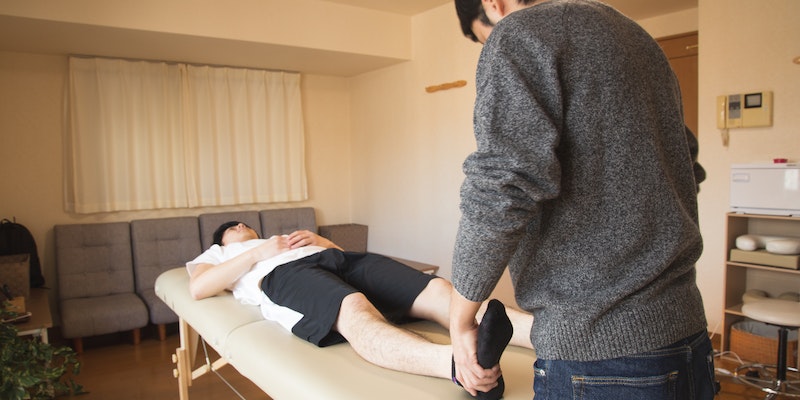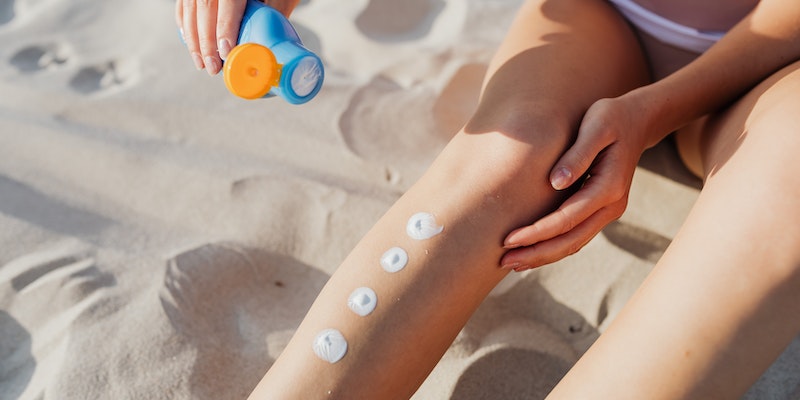Identifying Herpes: Signs and Symptoms
Oct 01, 2023
Herpes, an illness caused by the herpes simplex virus (HSV), can cause painful boils or sores. It mainly spreads when people touch each other. We can treat it, but we can not cure it properly. Herpes symptoms are similar to other conditions, such as acne, ingrown hairs, or the flu.
Even though herpes symptoms can appear and go away, the underlying virus can spread to others. If you catch herpes, it will always be there. People having herpes may have these symptoms.:
- Sore muscles
- Headache
- Oral herpes (throat pain)
- Lymph node swelling caused by an infection.
- Fever
Types and Their Symptoms

Only eight more than 100 herpes viruses are known to make people sick. However, antiviral drugs available by prescription can help prevent outbreaks and lessen symptoms, and the other six, HHV-3 through HHV-8, can cause problems with the skin, immune system, and other things. Herpes can cause recurrent outbreaks in some people, while others may be unaware they carry it. Eight types of herpes virus are:
- HSV-1
- HSV-2
- HHV-3
- HHV-4
- HHV-5
- HHV-6
- HHV-7
- HHV-8
HSV-1
Herpes simplex type 1 can spread by mouth saliva or sores on the skin. This can happen when people kiss or share toothbrushes or eating tools. Even if no open sores exist, HSV-1 can still be passed from one person to another. The following circumstances trigger attacks (or outbreaks) in many persons who carry the herpes virus HSV-1.
- Fatigue
- Psychological or physiological strain
- HIV or AIDS
- Damage to the region, including from sexual activity
- Menstruation
HSV-2
The virus can cause sores anywhere on the body, but they usually show up on the penis, in the genital area, on the buttocks, or in the anus. If a woman is pregnant and has vaginal herpes, she should talk to her doctor about it because the virus transfers from mother to child, and it is dangerous.
Herpes can also alter vaginal discharge and produce discomfort during urination. When they first appear, cold sores can linger for two to six weeks before healing. Repeated episodes of symptoms are possible soon after the original epidemic. The frequency of breakouts and the severity of herpes symptoms tend to decrease over time.
HHV-3
Virions-Zoster Viruses better known as chickenpox, is an example of HHV-3. This infectious virus initially shows symptoms as
- Itchy rashes on the chest
- Rashes on the back
- Rashes on the face
- Fever.
- Fatigued.
- Headache.
- An abdominal pain that sticks around for a day or two.
- An itchy rash.
- Bumps containing a milky-looking liquid.
These rashes then spread to other body parts. Close contact with an infected person dramatically increases the chance of contracting chickenpox, especially for those who have never had the disease or had the VZV vaccination.
Itching can be relieved with calamine lotion and oatmeal baths until the symptoms disappear, which usually takes a week. People at risk of developing a significant disease or skin infection may be given antiviral drugs.
HHV-4
Approximately 90% of the population will contract HHV-4, also known as EBV, at some time. This virus is responsible for infectious mononucleosis, often known as "mono." The common symptoms of HHV-4 are:
- Fatigue
- Fever
- Sore throat
- Swollen lymph nodes
- Larger-than-usual spleen.
Body fluids and recently used items, such as dining utensils, can transfer the infection from one person to another. Although there is no cure for EBV, the symptoms decrease with rest, drinks, and pain or fever drugs.
HHV-5
Cytomegalovirus (HCMV, CMV, or HHV-5) is the most frequent virus to infect a fetus. Although usually symptomless, infection can induce flu-like symptoms. It can reactivate and harm the eyes, lungs, liver, and other organs in immunocompromised persons. It can cause pregnancy difficulties if passed on.
This latent virus can bother pregnant women and others with compromised immune systems. The virus transfers from mother to fetus during pregnancy. Patients suffering from HHV-5 experience signs, including :
- High temperature
- Swollen glands
- Sore throat
- Aching muscles and joints
- Lack of appetite
- Loss of weight.
HHV-6
HHV-6 is an infection that is comparatively less common, but it attacks the body. The symptoms of HHV-6 are:
- Fever
- Diarrhea
- A rash is known as roseola in infants.
Human herpesvirus-6 (HHV-6) is a virus that spreads through saliva and causes many diseases, even though healthy people who have the virus may never get sick. Individuals with weak immune systems and HIV-positive or recently had organ transplants are at the most significant risk of contracting HHV-6.
HHV-7
HHV-7 is the least common type of herpes. This infection has the same symptoms as HHV-6, and researchers have less information about the causes, symptoms, and treatments of this infection. Moreover, this infection usually transmits through saliva.
HHV-8
HHV-8 is a new virus that spreads through bodily fluids, and it can cause
- Malignant tumors known as sarcomas
- Lymph nodes
- Mucous membranes.
The virus affects weak people. While there is no treatment for the virus, doctors may use radiation therapy, surgery, or chemotherapy to treat malignancies.
Treatments and Preventions

Despite being a chronic illness, most people don't worry too much about having HSV.
Herpes blisters can be painful and uncomfortable, but several home treatments can help alleviate symptoms and speed healing.
Even if we can not cure it, many people with it don't get sick for years. That is, it's possible that the virus won't make a big difference in how people live their lives. But you and your sexual partners should discuss HSV before doing anything sexual. Use these ideas as a starting point for your conversation because taking a few steps could also make it less likely that the herpes simplex virus will spread.
Skin-to-skin contact with someone with genital HSV should be avoided as soon as the first signs appear and until the sores fully heal. Try to use a different razor or toothbrush twice.
If you have oral HSV, avoid sexual intimacy until your spots are fine.





